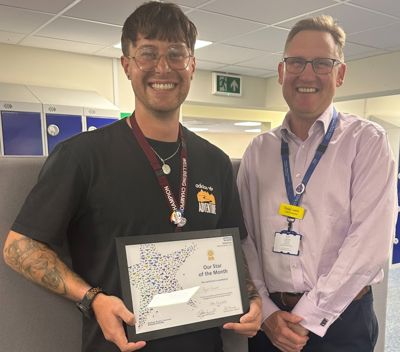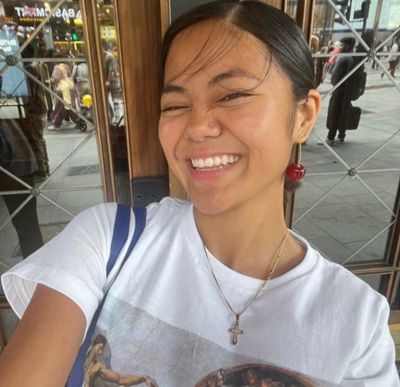“My highs and lows aren’t something I choose” – Shanice’s story
02/09/2025
Shanice explores her journey with bipolar disorder, reflecting on difficult first experiences with the condition and how she found self-acceptance.
My bipolar type two journey didn’t begin with the correct diagnosis. It first came wrapped in the label of emotionally unstable personality disorder (EUPD), something that, at the time, felt like another weight to carry rather than an answer.
Looking back, I believe this misdiagnosis was deeply connected to the unhealthy relationships I found myself in when I was younger. When you're growing up, no one teaches you about emotional abuse. You don’t see the red flags clearly. You learn to live in chaos and accept it as normal.
I was impulsive, reactive and often overwhelmed by my emotions. One minute I was fine, the next I was in tears, shouting, or disappearing into myself completely. I was the definition of "0 to 100 real quick." At the time, I just thought I was broken.
But it wasn’t always that way. When I wasn’t in those toxic environments, I could feel happy, free, even optimistic. I had a good life on the outside—but something inside never quite felt right.
-
I was up and down more than a yo-yo
I couldn’t understand why, even when everything was going well, I felt so low. I’d sit for hours asking myself what was wrong with me. I’d cancel plans, ignore calls and spend entire days—sometimes weeks—in the same pyjamas, barely moving from the sofa. Then suddenly, out of nowhere, I’d feel fine again. My energy would return, my mood would lift, and I’d start filling my calendar with plans. But just as quickly, I’d cancel them again. I was up and down more than a yo-yo.
Eventually, I saw a psychiatrist. That moment changed everything. Finally, I had a name for what I was going through: bipolar type two. It was a massive relief. Not because it made everything better instantly, but because it helped me understand that what I was feeling was real, and more importantly, explainable. It wasn’t just me being dramatic or lazy or flaky. I had a mental illness.
Living with bipolar isn’t easy. I still face mood swings, periods of exhaustion and the occasional impulsive decision. But now, I know what I’m dealing with. I can communicate better with my family and friends, who have come to understand that my highs and lows aren’t something I choose—they’re something I manage. And I do manage. Sometimes with help, sometimes on my own. But always with the understanding that my feelings are valid.
-
The biggest lesson I’ve learned is that speaking up is powerful
The biggest lesson I’ve learned is that speaking up is powerful. For so long, I stayed silent, ashamed of what was happening inside me. But the moment I began to open up, to seek help, to be honest—that was the moment things started to change.
If I could say one thing to anyone struggling, it would be this: you are not alone. Your feelings matter. You are seen, heard and so worthy of support.
My journey isn’t over, and it probably never will be. But that’s okay. Because now I know that there is strength in vulnerability, courage in asking for help and healing in acceptance.
You are valid. You are not alone. And your story matters—just like mine.



